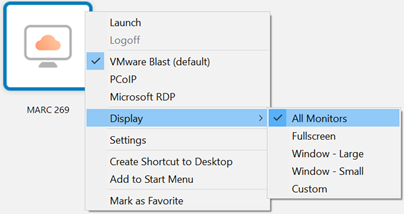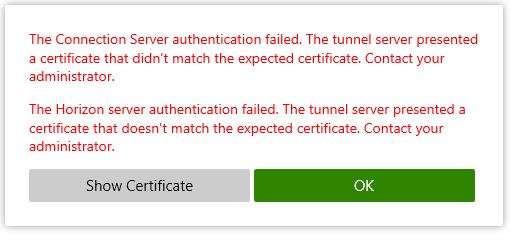Connecting to VMware Horizon for SEPT Labs/Software: Difference between revisions
m (updated links to new client) |
m (→Common Issues:) |
||
| Line 39: | Line 39: | ||
=== Common Issues: === | === Common Issues: === | ||
===== Server unavailable - Failed to respond ===== | |||
[[File:VMWare Horizon Client pic24.png]]<br>Check that you are connected to the VPN when you add or try and connect to the server. ([https://uts.mcmaster.ca/services/computers-printers-and-software/virtual-private-networking-students/ McMaster Student VPN]) | |||
===== When the VMware Horizon Client is first installed, it will default to selecting all “All Monitors” ===== | |||
When connecting to a VDI session you only have 1 monitor. This will cause the client to take over all monitors you have available in full screen. To use the Horizon Client on only a single monitor, right-click on the lab you wish to join and under “Display” select either “Fullscreen” or “Window – Large”<br>[[File:VMWare Horizon Client pic25.png]] | |||
===== The Connection Server Authentication Failed due to a certificate error ===== | |||
[[File:VMware Certificate Issue.jpg]] | |||
See: [[VMWare Horizon Certificate error]] | |||
Revision as of 10:46, 27 October 2023
Note that this setup requires your machine to be restarted. Please SAVE and CLOSE all programs before starting the setup. To connect to these servers, a VPN connection is required at all times.
Download and setup VMware
- Download the VMWare Horizon Client (At least V8 2309, suggested V8):
Windows Horizon Client
OSx Horizon Client
Other Devices - Install the VMWare Horizon Client from your downloads

- Accept Windows UAC by clicking on “Yes”
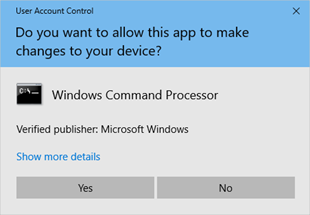
- Accept licence terms and install the client by clicking on “Agree & Install”

- Click on “Finish” once the application is done installing
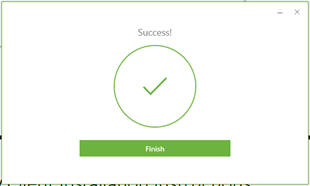
- Restart Machine by clicking on “Restart Now”
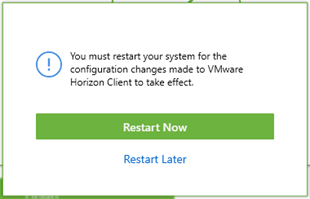
- Open VMware Horizon Client and click on either “New Server” or “Add Server”
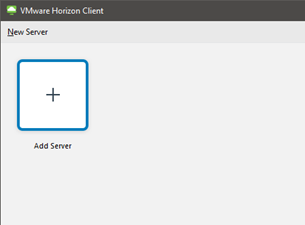
- Enter the address of the building you wish to connect to
- If your lab is in ETB, enter “etblabs.sept.mcmaster.ca” and click “Connect”
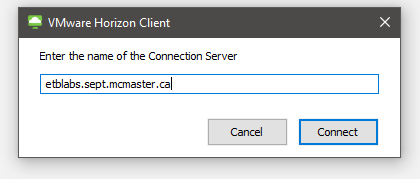
- If your lab is in MARC, enter “marclabs.sept.mcmaster.ca” and click “Connect”
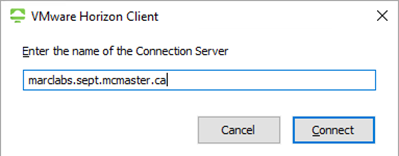
- If your lab is the GRAD open labs, enter "vdi.sept.mcmaster.ca" and click "Connect"

- If your lab is in ETB, enter “etblabs.sept.mcmaster.ca” and click “Connect”
- Enter your MacID and password
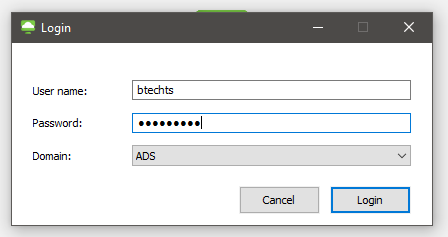
- Select the appropriate LAB or desktop application

- Wait for the connection to load

- Connect required USB devices for Lab Experiments

Accessing Remote Applications:
In some cases, it is better to access individual applications remotely instead of the entire computer. To obtain direct access to these applications they must be assigned to you before accessing them. Upon login, to the respective server (ETB or MARC) you will see any available applications on the dashboard.
Launching any of these applications on the right will open as if it is installed on your location machine. If you are frequently accessing an application, you can create a desktop shortcut by right-clicking on the application and selecting “Create Shortcut to Desktop”. This will place the application on your desktop for easy access.
Session Collaboration Setup for Host Machine:
Note that to collaborate on the same machine as another user, the VMware Blast option must be selected. To select this option, right-click on the lab you wish to connect to and select “VMware Blast” if it is not already selected.
- Once you have connected to your remote machine and are on the desktop, click the arrow in the bottom right corner of the screen to open the system tray

- Once the system tray is open, click the icon highlighted below to open the session collaboration tool

- Enter the McMaster email address of the person that you want to connect to your session

- Click on the user's name to add them as a session collaborator and when prompted click “Copy Link”

- A session collaboration icon will now appear on your desktop. Double click on this icon to bring up the session control panel. From here you can see who has been invited to your session, provide users with control of the screen, add more people, and end the collaboration session.

Joining a VDI Collaboration Session:
- To join a user's VDI session, open the VMware Horizon Client and login to the appropriate building where the host has started a session (ETB or MARC). If you have not yet added the server, see Setup Server Address.

- Once you are logged in to the building, any sessions you have been invited to should appear in the list of available labs. Double click on the collaboration session to join.

Common Issues:
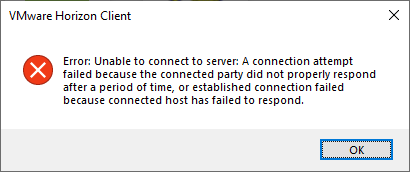
Check that you are connected to the VPN when you add or try and connect to the server. (McMaster Student VPN)
When the VMware Horizon Client is first installed, it will default to selecting all “All Monitors”
When connecting to a VDI session you only have 1 monitor. This will cause the client to take over all monitors you have available in full screen. To use the Horizon Client on only a single monitor, right-click on the lab you wish to join and under “Display” select either “Fullscreen” or “Window – Large”